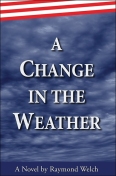Last week I wrote that some “conservatives” contradict their conception of themselves as careful, sober guardians of economic capital because they champion the squandering of two irreplaceable endowments: fossil fuels and the climate. A true conservative would do his or her utmost to leave an endowment untouched, and maximize the dividends it could produce.
Somewhere over the past few decades, the idea of “conservative” has taken a strange turn. When I was a child, semi-rural Maine was a genuinely conservative place, which produced its share of heartache. People were repressed, even thwarted. Certain things weren’t “done.” Ethan Frome, although set in western Massachusetts, captured the very constrained social atmosphere of much of northern New England that lingered into the middle of the 20th century.
But the crueler aspects of this stern atmosphere were offset by a strong sense of both individual and social responsibility and mutual respect. A person might be frowned on for speaking resentfully about the wealthiest man in town, but that wealthy man would also be frowned on for using his power in retribution. The concepts of noblesse oblige and live-and-let-live were as solid as the granite beneath the thin, pine-covered soil.
Democracy was strong, too, and direct. Most local government was organized around town meetings; many towns didn’t have a mayor, but a head selectman, an office that rotated among the elected. Government was respected. There was a sense of egalitarianism and common good. Authoritarianism was anathema.
Conservatives were stewards who took care of the land. They lived the adage, waste not, want not. Conspicuous consumption was looked down upon as crass and foolish. Craftsmanship was prized above ostentation. And people minded their manners and their own business.
Well, those days are gone.
Old-fashioned conservatism has morphed into, or been overtaken by, a peculiar hybrid of libertarianism, corporatism, greed, and hostility. Judging from some politicians and media pundits, core “conservative” values now appear to be (1) utter disdain for government, which Grover Norquist succinctly articulated when he said “My goal is to cut government … down to the size where we can drown it in the bathtub,” and (2) a notion of “freedom” that can be summed up by the phrase, “privatize the profits, socialize the risks.”
The desire to be free from interference, which old Mainers certainly championed, has lost the elements of accountability and shared responsibility, and become hyper-individualistic. I should be able to own as many guns as I want, of whatever firepower, and society has no right to protect itself from the risks that creates except after the fact or, alternatively, it must participate in the arms race itself. And I shouldn’t have to alter my lifestyle one whit, not even pay taxes, to counteract climate change.
Sometimes the truculence of this stance reminds me of the antebellum South, when “freedom” meant the freedom to own slaves without outside interference. Although the actions are today far less direct, the attitude is a direct descendent: don’t bring my antisocial behavior into question. The Real U.S. Map by Colin Woodard provides good insight into the history of this attitude; you’ll experience a few light bulbs going off above your head as you read it.
Here are some other non-conservative attributes a certain breed of self-described “conservative” exhibits:
- He accepts that corporations are citizens.
- He denies personal accountability for community problems.
- He’s impolite, shouts people down, sneers, and calls people names.
- He refuses to cooperate.
- He mistakes stubbornness for principle.
- He butts into people’s private behavior.
- He’s authoritarian and anti-democratic.
- He strives to impose his religious ideas on others through legislation.
- He cries victim.
- He blames others (e.g., immigrants, liberals, and above all, the government) for his unhappiness with the current state of affairs.
- He rejects science.
- He rejects facts.
None of these behaviors is conservative. They’re regressive—a move back socially to a more hierarchical, less democratic order, and psychologically to irrationality and childishness.
Limits, moderation, and restraint are conservative ideas. The American Revolution was fought and democracy instituted, among other reasons, to short-circuit the excesses and injustices of aristocracy. Laissez-faire capitalism is not a conservative idea; minimal taxes is not a conservative idea; unlimited gun ownership is not a conservative idea; shrinking government to a size so small you can drown it in a bathtub is not a conservative idea. These are radical, reactionary, antisocial ideas.
It’s going to take a lot of thought and effort to get past them and on to solutions.


I have been railing about this for years and I challenge so called political conservative to tell me how ruining the planets climate being for fossil fuels is a conservative idea. Root word Conserve, Conservation, keep for later use…
Excellent analysis. Have you read Jared Diamond’s book, Collapse? It touches upon many of these things in the opening chapter about south-west Montana.
Personally- speaking, I think the whole transformation from conservatism to libertarianism can be blamed on the McCarthyite legacy of the Cold War – i.e. the mind set that perceives anything that challenges free market economics as a wannabe pro-Communist revolution.